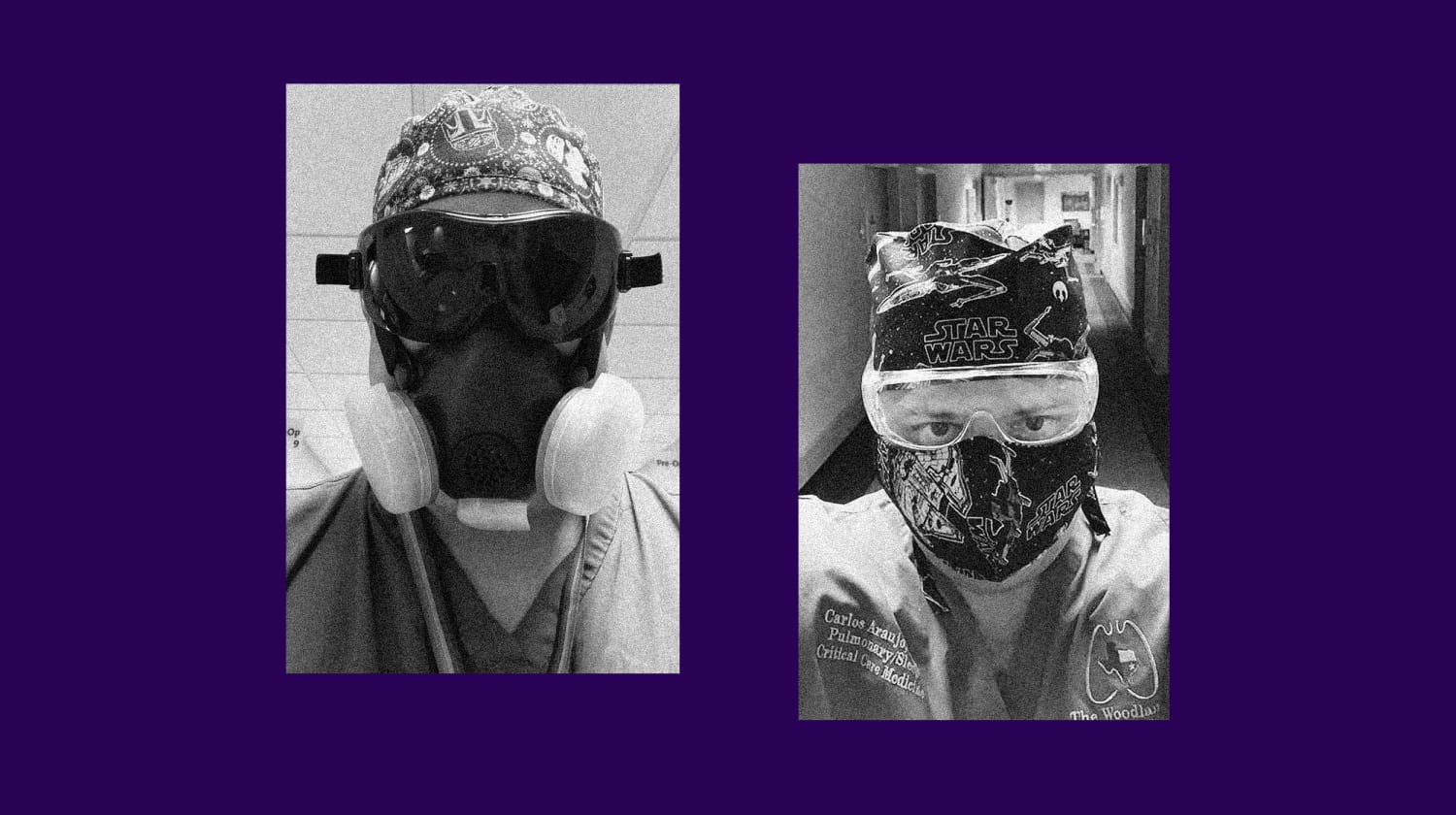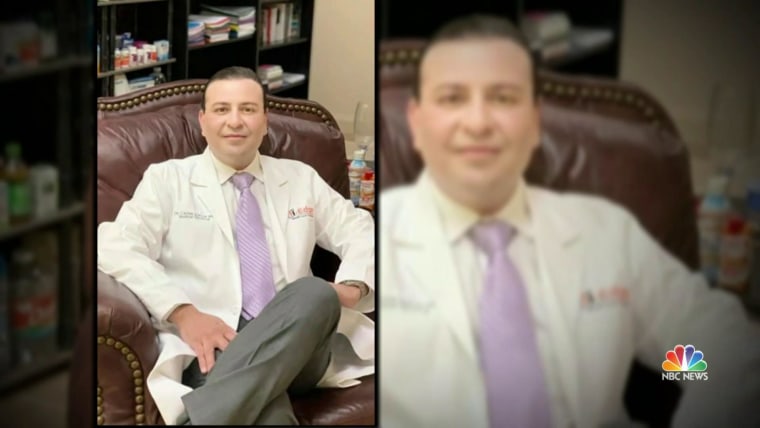On a normal morning at the Sample house, my wife, Grace, rises around 5 a.m. She spends the next three hours in peace and quiet, having breakfast, catching up on emails, reading The New York Times or watching one of her favorite cooking shows. Pretty standard stuff until I drag my sorry butt out of bed around 8 a.m. But last Monday, my morning sleep was interrupted when Grace came into our bedroom in a state of shock. She was crying so hard that I was certain something terrible had happened. I put my arm around her shaking shoulders.
This year’s holiday celebrations, for obvious reasons, have been a bit subdued. So we decided to forgo the lights we usually place in all the windows — except one.
I asked, “Are you OK?” No response.
I asked, “Is it Jason? Has something happened to Jason?” Again, no response.
She sat on the edge of the bed and cried like never before. Finally, when I was able to get something out of her, she said she had just read an NBC News story about Dr. Carlos Araujo-Preza, a Houston doctor who succumbed to Covid-19: “He treated Houston’s most desperate Covid patients. Then he became a victim.” Araujo-Preza had died when the coronavirus he had contracted from one of his patients shifted to his brain.
Our son Jason is a surgeon at New York-Presbyterian in Queens. Until Jan. 20, when the first case of Covid-19 was reported in the United States, we didn’t worry much about him in his chosen profession. Now, it’s always lurking at the back of our minds. And some days, like last Monday, it’s all we can think about.
The similarities between Araujo-Preza and Jason shook Grace to her core.
Jason is also a front-line doctor fighting Covid-19. He is 50. Araujo-Preza was 51. Araujo-Preza’s partner is a nurse practitioner. Jason’s wife is a nurse practitioner. Araujo-Preza loved “Star Wars,” and his partner refers to him as a Jedi. Jason’s ringtone on my cellphone is the movie’s theme song because of how much he loves “Star Wars.”
And Araujo-Preza, like Jason, treated Covid-19 patients around the clock for months, with many nights spent sleeping in his office. At the start of each shift, they both suited up in their personal protective equipment, taking the challenge and the danger presented by the virus very seriously. When Jason sent me a selfie of him in his PPE earlier in the year, it sunk in that my son was in harm’s way every day. I felt like the father of a soldier in a war zone.
And yet, that didn’t stop Jason, or Araujo-Preza.
The article reported that Paige King, Araujo-Preza’s partner, remembered asking him one morning, when he stopped home for a shower before heading back to work, “Baby, aren’t you afraid of getting this?” Araujo-Preza shook his head. “I’m not afraid,” King recalled him saying. “I was born for this.”
Back in March, when things were going crazy with Covid-19, I was texting Jason every day asking how things were going in Queens, at that time the epicenter for the coronavirus in the United States. Though Jason is a surgeon, he had been asked to treat Covid-19 patients once the pandemic hit. In one text, I asked him if this was what he signed up for. His response: “Dad, this is what I went to medical school for.”
About two weeks ago, Jason’s surgical intensive care unit was once again converted into a Covid-19 ICU, as the number of cases in New York once again started soaring. To say I was unhappy is a dramatic understatement.
On Wednesday afternoon last week, Jason texted that 30 minutes prior, he had received his first Pfizer vaccine injection. I shed a tear.
When your children are growing up, you do everything you can to protect them from the world and prepare them for living in it. And then they become adults and you realize that the need to protect them never goes away. Unfortunately, right now, there is nothing I can do to protect my child. Grace and I can’t hug him. We can’t ask him not to go to work. We’re not even sure it’s safe to see him.
This year’s holiday celebrations, for obvious reasons, have been a bit subdued. So we decided to forgo the lights we usually place in all the windows — except one in an upstairs window.
When we get annoyed by the day-to-day inconveniences caused by the pandemic, the light can call us to transform our frustration into gratitude.
After reading of Araujo-Preza’s death and sharing Grace’s pain over his passing, I now know why we only put up one light: It’s for Jason and all the Araujo-Prezas, emergency medical technicians, nurses and hospital staff who are risking their lives to fight this horrible disease. Every time I see the light, I am reminded of the thousands of professionals working endless hours using all the skills they have to keep people from dying.
One thing we can do is pray. The light in our upstairs window will stay lit to remind us of all the people working to save lives, the need to pray for them and keep them in our thoughts. When we get annoyed by the day-to-day inconveniences caused by the pandemic, the light can call us to transform our frustration into gratitude.
There are tens of thousands of families like ours, with fathers, mothers, children, siblings, partners of loved ones going into harm’s way every day. Know the light in our window is for every one of your loved ones, too. It will stay lit until Jason tells me, “Dad, it’s OK to shut off the light.”
Source: | This article originally belongs to Nbcnews.com











